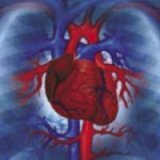Cystitis in the child
 The child's organism is very susceptible to various diseases. Therefore, even a child may have cystitis. Doctors very often diagnose this disease in children, so parents should always be attentive to the health of their baby and know how you yourself can suspect acute cystitis.
The child's organism is very susceptible to various diseases. Therefore, even a child may have cystitis. Doctors very often diagnose this disease in children, so parents should always be attentive to the health of their baby and know how you yourself can suspect acute cystitis.
Cystitis and the course of the disease
Let's first talk about what is cystitis. Cystitis is an inflammatory process that occurs in the urethra. Doctors distinguish two forms of this disease: chronic and acute. As a rule, children have an acute form of cystitis. If you do not find it in time and start treatment, then it can go on into a chronic one. Therefore it is very important not to miss the onset of the disease.
In some cases, an acute form of cystitis can become chronic:
- Very often acute cystitis becomes chronic in infants. This happens because the clinical picture of the disease in newborns is very smeared, and it is very difficult to understand the cause of the baby's anxiety. After all, small children can cry for various reasons. In addition, the frequency of urination in infants is frequent. Therefore, this indicator can not be suspected of cystitis. The disease can go on unnoticed for many years, and only when the child is older, cystitis worsens and it can be diagnosed.
- In the absence of timely and correct treatment of acute cystitis can go into a chronic. In some cases, parents try to cure cystitis by themselves with the help of folk remedies, but this can not be done. Only the doctor should prescribe the treatment. With self-treatment, the symptoms of the disease can disappear for a certain period of time, but the disease itself will pass into a chronic form.
Doctors most often diagnose this disease in children of school age, as well as adolescence. It is worth noting and the fact that girls are much more likely to have cystitis than boys. And all because girls have an urethra shorter than boys. In addition, the urethra is located almost near the anus, which means that the pathogenic microflora can penetrate the bladder very quickly.
Causes of the development of the disease in children
Most often, cystitis in children is found for the following reasons:
- Because of chronic kidney disease. If the child has problems with the kidneys, especially the presence of infectious diseases, then most likely he will have cystitis. Even if the treatment of kidney disease is started in time, the predisposition to chronic cystitis still develops.
- Due to hypothermia of the body. The child's immune system is not as strong as in adults, so the slightest hypothermia can provoke a variety of diseases, including cystitis. Even if the baby rakes his feet in the rain or just freezes, he may have acute cystitis. But it is worth noting that most often cystitis occurs against the background of another disease. Therefore, if the baby is completely healthy, then hypothermia will not threaten him with this disease.
- Due to non-observance of personal hygiene. Especially this aspect is relevant for girls. Above it has been said that the urethra in girls is much shorter, so the infection is much faster penetrates into the bladder. That's why it's very important to keep an eye on the intimate hygiene of a little girl. It is necessary to wash the baby and then teach her how to do it herself. In addition, it is very important that she does it right - front to back. Then the E. coli does not fall on the genitals. You can not forget about changing underwear. Linen needs to be changed at least once a day.
- Because of thrush. Not only women are found thrush. This disease is also often found in young girls. As a rule, the thrush leads to cystitis, if it is not treated. Therefore, if you notice this disease in your baby, take her to a gynecologist so that he can prescribe a treatment.
- Because of a malfunction in the normal process of urination. There are many reasons that can cause this problem: restraining urge in the toilet, anatomical disorders in the structure of the urinary system of the child, and the like. In any case, the delay in the normal outflow of urine can lead to the development of cystitis, both acute and chronic.
- Because of the presence of parasites. If there are parasites such as worms or pinworms in the body, this can provoke the development of cystitis. Therefore, in the first place, it is necessary to pass an analysis of stool in order to diagnose parasites. By the way, parents should remember that every six months a child should undergo a preventive examination.
- Because of taking some medications. In some cases, doctors have to prescribe to children such medications that can trigger the development of cystitis. These drugs include: sulfonamides, urotropin and drugs that inhibit the activity of the immune system.
- Because of surgical interventions. If the baby has surgery on the genitals or on the bladder, then he may develop cystitis. However, this happens rarely, because doctors know the characteristics of the child's body and prescribe a special therapy.
- Because of the presence of a chronic infection. Sometimes cystitis can provoke such diseases as tonsillitis, tonsillitis, adenoids and even caries. Risk increases if these diseases are chronic. In such cases, cystitis will disturb the baby until the underlying cause is resolved.
- Because of weakened immunity. If the baby is often sick, he has a higher risk of cystitis.
Symptoms of the disease in children
Children suspected of cystitis is not so simple. Therefore, parents should be very careful. In newborns, cystitis can be suspected only of the behavior and well-being of the baby. In older children, the symptoms are as follows:
- Pain sensations in the lumbar region and in the lower abdomen. The child can also complain of a feeling of heaviness in the abdomen. But parents should understand that such symptoms can occur in other diseases. Therefore, the child needs to be shown to the doctor.
- Problems with urination appear with cystitis always. The child may have a false urge to urinate or vice versa, frequent urination. In addition, each trip to the toilet will give the child a lot of discomfort. He will have a burning sensation and pain. As a rule, such symptoms appear first of all.
- Change in urine. The urine changes color - it becomes dark brown. In addition, it changes its smell - it becomes sharp and unpleasant. Sometimes in the urine there may be sediment, impurities of blood or pus.
- Increased body temperature. Almost in all cases of cystitis in children, body temperature rises to 39-40 degrees. To knock it down is very difficult. In chronic cystitis, body temperature is 37.5 degrees, and other symptoms are less pronounced.
Diagnosis of the disease in children
At the first symptoms of the baby, it is necessary to show the doctor as soon as possible. To confirm the diagnosis, the doctor will give an urine test. The general analysis of urine and bacteriological is handed over. After urine tests, the doctor prescribes an ultrasound examination of the urinary system. This is necessary in order to assess the condition of the bladder, kidneys and ureters. After a complete examination, the doctor prescribes treatment.



